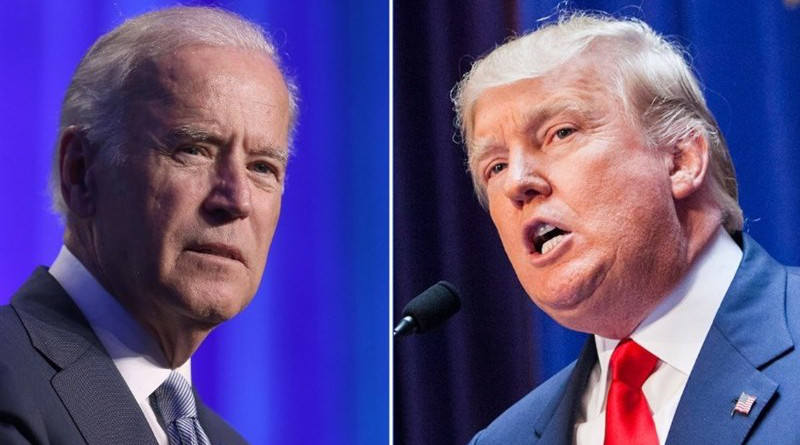Build, Not Burn, The Best Approach For US Transition – OpEd

By Alistair Burt*
With the restoration of the familiar daily security briefings he used to receive as vice president, US President-elect Joe Biden now knows he is on the last lap of his extraordinary journey to the White House. “Home safe,” as baseball has it.
Only, not quite, for he is now in that most dangerous of run-ins: The transition of power from an unwilling predecessor.
The lack of grace is annoying enough in human terms, but the affront to democracy of a bad loser with no grounds for a challenge goes beyond the US. Countless efforts in democracy building worldwide seek to establish the institutional structures that commend orderly and consensual transitions of power. Such transitions recognize not only a winner’s right, but also crucially imply that government, once lost, can be regained and that politics is not a zero-sum game, in which power must be held onto regardless of the cost as the only way to ensure self-preservation.
From Bashar Assad to Alexander Lukashenko, the lack of such a transition can be counted in loss of life, democratic rights, and subjugation. The humble removal van and gracious concession speech mean lives saved and governance enhanced worldwide. An example to the contrary resonates way beyond the Potomac.
The US transition process, with the built-in breathing space before a new administration takes office, is especially welcome in terms of Middle East policy, but here Biden’s dangerous run-in moves from the philosophical to the concrete.
What is the choice for the outgoing president — burn or build?
It is not difficult to build traps in the Middle East, should he wish to do so. There is little evidence that “one last push” on his policies would bring outright success anywhere. Foreign policy accrues, and hindsight is always useful in analyzing what really went well, or not. The policy of seeking to scrap anything done by President Barack Obama, just for the sake of it, was flawed, not least in that some of those policies would inevitably have needed revision, as they were not all successful. Biden is unlikely to make the mistake of revisiting 2016, and should not do so on the basis that all before it went well and all afterward went wrong. The world has moved on and he can no more seek to scrap all that the Trump administration has done than assume a return to 2016 can deliver relevant solutions for today.
So what the president-elect needs to do is consolidate what has been achieved, evaluate it, and proceed to build on it — and he deserves the assistance of the current president in doing so. Two things stand out: Iran and the Middle East peace process. UK Foreign Secretary Dominic Raab has already guardedly commented on his “concern” at the circumstances of the assassination of nuclear scientist Mohsen Fakhrizadeh, and will probably not venture further. He will wisely not seek to add any more fuel to the fire, and nor should the US. To provoke some last-minute confrontation or seek to close down the limited and carefully crafted steps a new US administration might seek to take with Iran would not serve the region well.
Biden’s nominee for secretary of state, Antony Blinken, requires no lectures on what needs to be redressed in any new negotiations, such as the concerns of regional players not only surrounding the nuclear file, but also Iran’s other activities and weaponry. Both the US and Iran need a clear run at a new, brutally frank, opportunity — a point echoed this week by a statement issued by the European Council for Foreign Relations and signed by, among others, Carl Bildt, Javier Solana and Wolfgang Ischinger, urging Europe to give maximum, but clear-eyed, support for such efforts.
The Middle East peace process, rocked by four years of one-sided activity from its former neutral broker, does not need encouragement from the current secretary of state for further partisan policies by visiting settlements in internationally disputed areas. It needs to be allowed to build on the reality behind the Abraham Accords, the new political coalitions in the region, and the need for economic development for a fast-growing and demanding young population no longer to be stymied by boycott and political sclerosis. It needs time for a revived Arab Peace Initiative to be successfully used by the Gulf states to tie together normalization with Israel, not in spite of the Palestinian issue but because of the need for it to be justly and securely settled as the pathway toward a more stable regional future.
Exclusion has not truly delivered on either of these issues over the last four years. Inclusion, with obligations and new realities accepted by all sides, has a better chance going forward. Allowing the new administration to build on lands not scorched would be wise.
- Alistair Burt is a former UK Member of Parliament who has twice held ministerial positions in the Foreign and Commonwealth Office — as Parliamentary Under Secretary of State from 2010 to 2013 and as Minister of State for the Middle East from 2017 to 2019. Twitter: @AlistairBurtUK
The article Build, Not Burn, The Best Approach For US Transition – OpEd appeared first on Eurasia Review.

